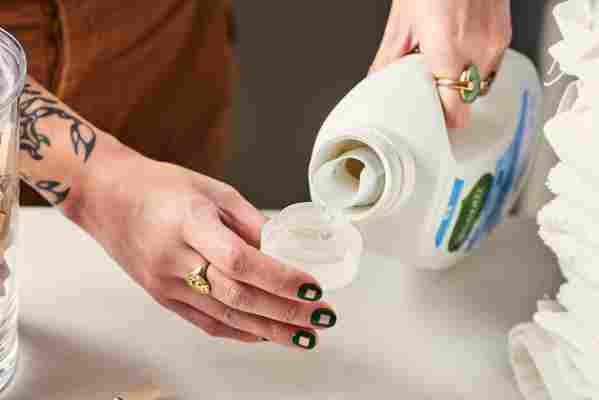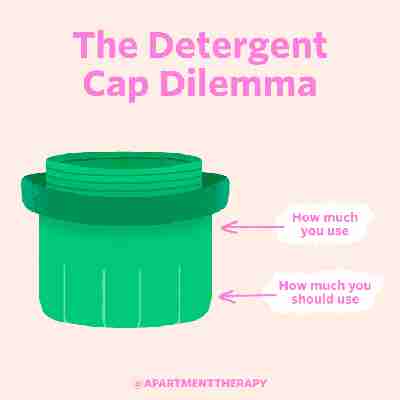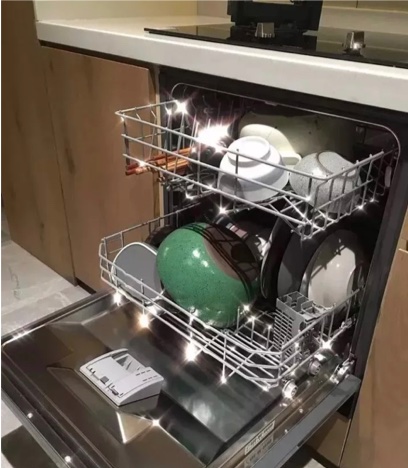
Do you remember the first time you did laundry on your own? Maybe you were in middle school, high school, or even college. The process can be intimidating, leaving you nervous about if you’re going to accidentally stain all your white clothing pink, or make a critical error by choosing the wrong temperature setting. But some of the smaller details — like how much detergent to use — can also be confusing. And, as it turns out, the majority of people have probably been using far too much laundry detergent for far too long.
It’s a mistake that directly correlates with the type of detergent you’re using, says Dr. Peter He, chief scientist for Dirty Labs . “When David (my co-founder) and I were taking our early investor meetings, we had multiple potential investors suggest that we increase the size of our caps to encourage customers to use more product,” says He.
No matter what detergent you use, it’s worth taking a good look at the label’s instructions, rather than eyeballing in relation to cap size. “A typical measuring cup for laundry detergent bottles can hold nearly 10 times the required amount,” says Leanne Stapf, chief operating officer of The Cleaning Authority . “Be sure to measure out how much laundry detergent is actually needed for each load to ensure you’re not using more than what’s necessary.” In most cases, you only really need about a tablespoon of detergent for one standard load of laundry, says Stapf.

The benefits are threefold: You’ll save money on detergent, your clothes will be cleaner (using too much detergent can actually coat your duds!), and you’ll limit the amount of pollutants you put into the environment.
“With many laundry detergents, the formula itself can contain toxic or polluting chemicals that can enter your soil or water supply. Some of these chemicals, such as 1,4-dioxane, are difficult to filter out and can accumulate to contaminate an entire community’s water source,” explains He. “Additionally, some chemicals break down very slowly or do not degrade at all after being introduced to the environment, so using more than you need can increase the amount of these chemicals entering and staying in the environment.”
If you want to go the extra mile when it comes to making your laundry routine more sustainable, reconsidering your usual detergent isn’t the only thing you can do. You can also use detergent optimized for cold water or try line-drying your clothing to not only save energy, but also make sure your clothing lasts as long as humanly possible, says He.
Making a positive change for the environment and making sure my favorite clothing lasts longer? Sounds pretty good to me.












